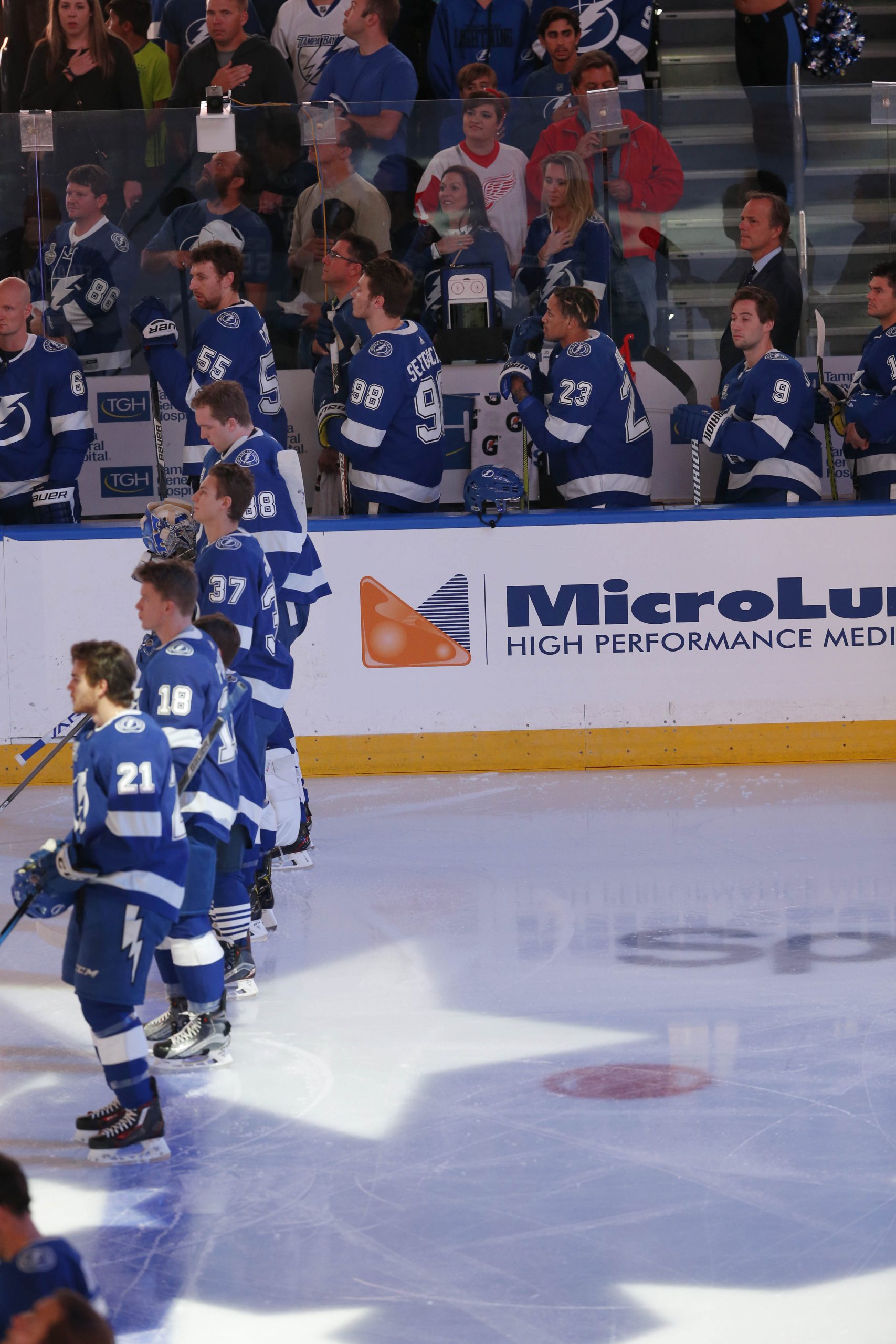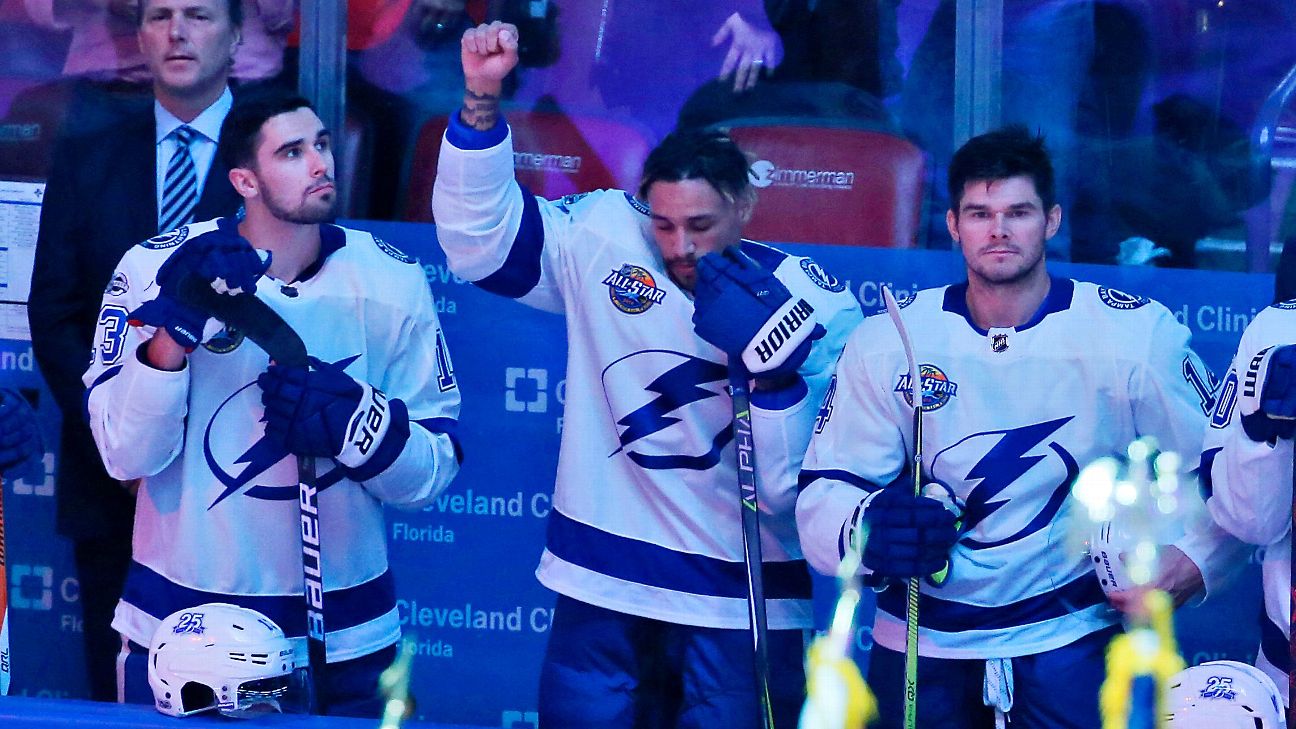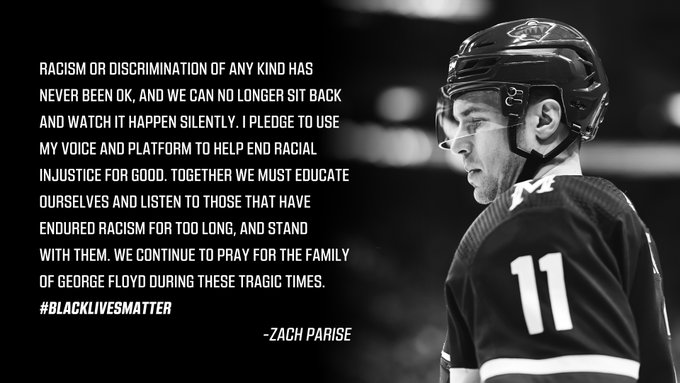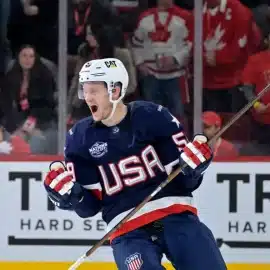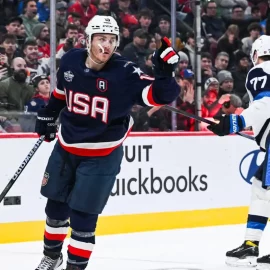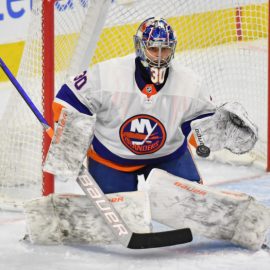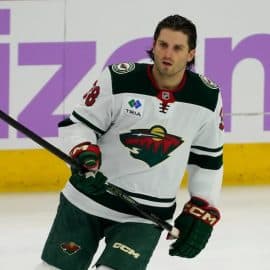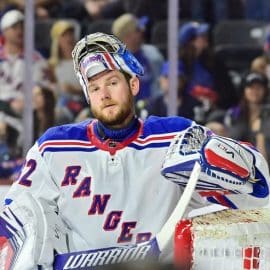In my own life, I’ve pretty much lived in very white, Christian communities. I’m sure that’s an excuse that many people use for “I don’t know what to do or how to help when I see injustice.” Heck, many probably don’t even recognize injustice. Perhaps because I’m a female with a physical disability has helped me see the other side more clearly. I’m not a white, CIS male, who pretty much has the world handed to him on a plate. I lived near a community with a large Hmong population. I transferred to a public arts school, where my interactions with LGBTQ youth was normal.
So when my first, in your face experience with intolerance came as an adult, I wasn’t afraid. About 10 years ago, Derek and I attended a Wisconsin high school All-Star football game. One of his players was in the game, and our long-time head coach was selected to be one of the head coaches. For that game, the teams were Northern Wisconsin versus Southern Wisconsin. The Southern Wisconsin team consisted of players from Madison, Milwaukee, Janesville, Kenosha and Racine, and more racially diverse than the Northern Wisconsin team.
The Southern team had better players at the skill positions than did the Northern team, and were frequently in the endzone. So imagine my shock when I’m sitting there and I hear from behind me, one of the parents of a Northern Wisconsin player yell “just get into the endzone you porch monkey!” And not just once. He used that slur several times. What would you do if you heard someone say that loud enough for the 20-25 people in your vicinity to have clearly heard it with a number of fairly young children around? Would you stay quiet, stunned that someone would say such a thing but not wanting to cause a scene? Or would you confront it right then and there?
I confronted the person, and I castigated the man for his racist comments and shamed him right then and there. There was an uncomfortable silence for a few moments after I took him to task among those in the crowd but I wasn’t going to let those racist comments go unchallenged. That doesn’t make me a hero or better than anyone else, but I wasn’t going to stay silent. I wasn’t doing it just to hold someone else accountable for their actions, but myself as well.
Words matter. Actions matter.
Ever since the murder of George Floyd in South Minneapolis by officers of the Minneapolis Police Department, I’ve spent a lot of time reflecting on the issue. I’ve continued to address my own white privilege. I’ve asked why unarmed people of color, in particular men, continue to be killed, harassed, and arrested for doing everyday things that people like myself take for granted. But the grim fact is Floyd one of the most recent in a long-line of slayings at the hands of the police. Manuel Ellis, Breonna Taylor, Ahmaud Arbery, Michael Brown, Eric Garner, Freddie Gray, Tamir Rice, Philando Castile, Botham Jean, Eric Reason, Dominique Clayton, Jamar Clark and Dreasjon Reed and sadly many others have been the victims of this type of violence.
Context is important, it helps us better understand cause and effect and the roots of what we’ve seen in protests around the world go to an oppression that has been going on for over a century. So in an effort to help provide some more historical context, if you have never read about the Elaine, Arkansas Massacre back in 1919 please take a moment to educate yourself.
Over a fear that Arkansas sharecroppers were going to organize a sort of agricultural union demanding better pay for their crops and perhaps lead an insurrection, local police along with 500 Army soldiers from nearby Camp Pike decended upon Elaine, Arkansas (and Phillips county) to kill any Black person they could find. Estimates indicate that there were over 200 slain in the massacre, including decorated World War I veteran Leroy Johnston who had recently returned from fighting in the trenches of France. Even after the massacre, 12 more black men were charged with murder (as 5 whites were killed in the fighing) and were going to be given the death penalty. The incredible brutality of the massacre shocked the nation; even as the Flu Epidemic was ravaging the population.
The only good that came out of it, was it led to a Supreme Court case, Moore vs. Dempsey (1923) challenged the fact that justice had been done citing the fact it the defendents faced an all-white juries, and an overall denial of due process where they were forced to confess under torture, and the juries ruled under mob pressure that if they voted to acquit they might as well sign their own death warrant. The Supreme Court ruling acquitted the 12 of their crimes and the 6-2 ruling also had implications involving the use of federal intervention over contested criminal cases. This case helped spark the Civil Rights movement of the 1950’s and 1960’s. But sadly, the violence continued as African Americans were still being lynched and police brutality continued mostly unchecked.
On March 7th, 1965, as millions of Americans watched on television, troopers of the Alabama State Police assaulted peaceful protesters on the Edmund Pettus Bridge in Selma, Alabama. The horrific scene, with police officers striking protesters with batons and even whips finally stirred an awakening of just how bad things were and raised the consciousness of whites to the brutality African Americans faced in this nation. Thousands of various clergy and other younger Americans took busses to Alabama to join the protests.
Alabama Governor George Wallace pleaded with then President Lyndon Johnson to stop the marchers. The President didn’t give in to Wallace’s demands and the march went on. Eventually, led by Dr. Martin Luther King Jr. and other prominent members of the Southern Christian Leadership Conference, the protesters marched their way to the state capital in Montgomery 50 miles away. Once there, King gave a speech demanding the right to vote. The right to vote was more than just having a voice in the democratic process, it also meant a better chance at justice as juries were picked from a list of registered voters. Yet even with a chance to have more justice in the courts the violence continued and convictions of officers involved in actions of police brutality were painfully elusive.
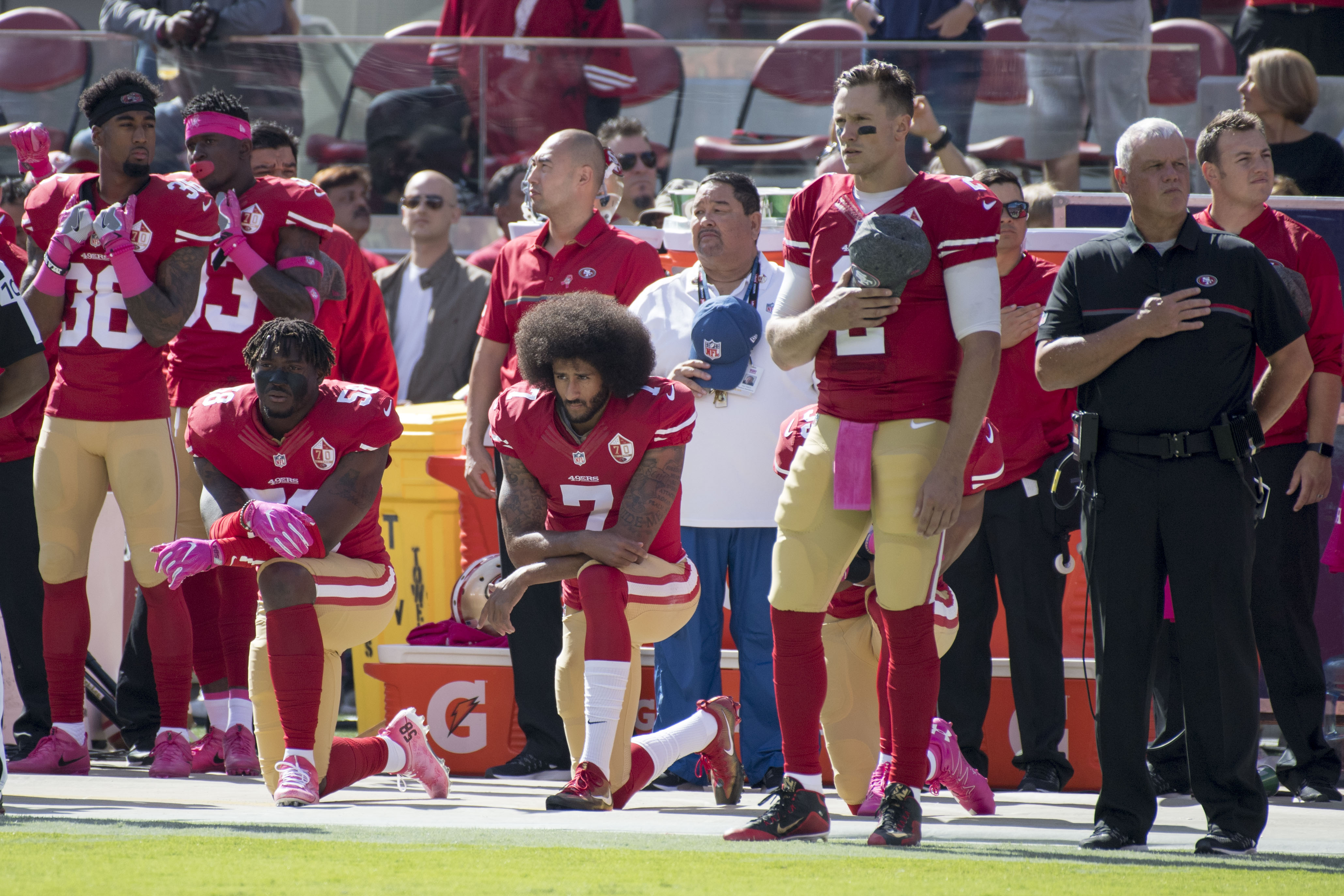
In the NFL pre-season of 2016, San Francisco 49’ers quarterback Colin Kaepernick started kneeling during the National Anthem. At times other players kneeled along side him while others stood. The silent protest reminded many of American Olympian sprinters Tommie Smith and John Carlos holding up their gloved fists on the medal podium at the 1968 Olympics in Mexico City. The peaceful protests in both 1968 and 2016 drew outrage from those who felt it was disrespecting the flag and America’s veterans. President Donald J. Trump chimed in calling those who kneeled at games “sons of bitches” in an angry Tweet. The issue became a major sports topic on political activism and whether athletes should be involved in such activism or whether they should just stay in their lane. Kaepernick, a quarterback who once led the 49’ers to a Super Bowl in 2012 was effectively ‘blacklisted’ and hasn’t played in the league since.
A few athletes from outside the NFL chimed in at the time of the President’s comments, giving their support of their fellow athletes’ right to peacefully protest. J.T. Brown, then a member of the Tampa Bay Lightning held his fist up during the anthem in a game against the Florida Panthers. A few NHL’ers voiced their support of Brown, but others felt what he did was inappropriate. Columbus Blue Jackets Head Coach John Tortorella told ESPN‘s Linda Cohn was quoted as saying if any of his players sat during the national anthem they wouldn’t play in the game. Brown challenged Tortorella’s statement when he tweeted the following comment.
[protected-iframe id=”5f53c085202d8ad24299d88357f7fa1f-142507471-107882219″ info=”twsrc%5Etfw” class=”twitter-tweet”]The former Rosemount star would later add,
“I could have been quiet and just kept my opinion to myself, but I don’t want young minorities who love the game of hockey to think that what’s going on in America today is going unnoticed by the hockey community. I love America and thank the military for protecting our freedoms, as well as law enforcement for protecting and serving our communities, but that doesn’t mean I can’t acknowledge that there is still racism today. I am glad my tweet provoked a discussion, because we need to start having a conversation about racism if we want to work towards a better America.” ~ J.T. Brown
While Brown got support from his teammates and head coach Jon Coooper, few seemed willing to join him in his protest. Others spoke against Brown’s act including former Minnesota Wild winger Patrick O’Sullivan who tweeted.
“1st amendment is great it protects you from the government but in pro sports coaches make the rules. Paid to make rules that players follow.” ~ Patrick O’Sullivan
The statement seems to be dismissive of Brown and a few other notable people like Brian Burke and Don Cherry voiced their support of Tortorella’s comments.
Fast forward to May 19th, 2020, when Akim Aliu wrote a story for the Players Tribune talking about his own story of discrimination and how it effected his career. Only a small handful of players chimed in with their support of Aliu’s article. It was the kind of article that forces people to reflect and possibly confront their own biases and possible discriminatory behavior. He described in vivid and painful detail how then Rockford Ice Dogs Head Coach Bill Peters repeatedly called him ‘nigger’ in front his teammates. He described how players afraid to be benched or sent down stayed silent instead of speaking up and eventually Aliu himself found himself demoted to ECHL. This is part of the problem, the fear of retribution if you speak out. Peters of course was later fired as Calgary Flame’s head coach on the face of those revelations as well as other comments he made.
But it’s still an uphill battle for some to take a stand against such bigotry, even if it’s painfully obvious. Shortly after the murder of George Floyd by 4 members of the Minneapolis Police Department, Minnesota Wild alternate captain Zach Parise made these comments in an interview with TSN.com.
What is your perspective on what’s happening in Minnesota right now?
(Note: This interview was conducted on Friday, May 29th.)“It’s scary. It’s a scary time right now. Some horrific videos. That video that came out with George Floyd, I mean, you don’t really know how to put that into words. And now seeing what’s happened to Minneapolis and Saint Paul with the rioting and the looting and the fires, I mean, it’s scary times. You hope they’ll get it under control as soon as possible. The police are doing everything they can and the best they can and we support the job that they’re doing and getting everything under control. I know the National Guard is here now. We hope that people, if they want to protest, protest peacefully and hopefully we can put an end to the riots.”
If some Wild players want to get involved with the discourse that will follow this situation, how would that be received in the dressing room?
“Well, we’re all entitled to our opinions and mine might differ from yours, but that doesn’t mean we can’t talk to each other. You know, we can all have a conversation and talk about it and it’s okay if we don’t agree, it doesn’t make you a bad guy, doesn’t make me a bad guy. At the end of the day, we all want everyone to be safe and we all want everyone to feel safe and we don’t want people to be losing their businesses, losing their buildings, losing their housing and that’s what’s happening right now and we just hope that can all come to an end.”
What really bothered me about Parise’s answer, is that it sounded like he was more concerned with the safety of the police and the businesses. It felt like he completely missed the point, that another unarmed Black man was murdered by a white police officer. Now, compare that with what most likely is a heavily crafted message by the Wild’s PR team:
That is the message he should have made during that TSN interview. Instead, we heard his concern for the police and businesses. Who knows, maybe reading the statements of other athletes and fellow NHL’ers opened his eyes to what was really going on. We’ll probably never know for sure.
The only other Wild players we’ve heard from are Matt Dumba and J.T. Brown. But where are their teammates? This is why words and actions do matter. Silence is not golden. If you are silent, you might as well have been the cop with the knee on the back of George Floyd’s neck. Silence makes you complicit with those that felt the police’s actions were justified. Pastor Martin Niemoler, a victim of the Holocaust described how his own silence helped feed an oppressive system when he said:
“First they came for the socialists, and I did not speak out—because I was not a socialist. Then they came for the trade unionists, and I did not speak out— because I was not a trade unionist. Then they came for the Jews, and I did not speak out—because I was not a Jew. Then they came for me—and there was no one left to speak for me.” ~ Pastor Martin Niemoler
Zach’s message wasn’t the biggest failure of an athlete to completely miss the point of the protests. That dubious honor goes to New Orleans Saints’ quarterback, Drew Brees who commented on the protests by saying to Yahoo! Finance, when asked if players kneeled during the anthem during the next NFL season due to the continued police brutality against African Americans he had this to say,
“He will never agree with anybody disrespecting the flag of the United States of America.” ~ Drew Brees, New Orleans Saints QB
Like Parise, he was likely walked back by the Saints PR staff and crafted an apology but the damage had already been done. Teammates Malcolm Jenkins and Michael Thomas blasted Brees’ ‘tone deaf’ comments. Brees would later give an apology in the wake of the backlash, but the earlier insensitive remarks still speaks to how aloof some as to what these protests are about whether in the streets of cities and towns around the United States and worldwide or why players kneel or hold their fist up during the Nationa Anthem. They just don’t get it. Many athletes, celebrities challenged people to not just talk about injustice but to actually act and confront racism with action in their everyday lives.
Words Matter. Action matters.
Just because hockey is a sport that does not have the same level of diversity as the NFL, doesn’t mean players can’t be more ‘woke’ to the struggles of others. Jason Zucker, Jonathan Toews and Braden Holtby made eloquent and powerful statements in reaction to George Floyd’s murder and the subsequent protests.
[protected-iframe id=”579f10619c530d7c8668197323de89c7-142507471-107882219″ info=”twsrc%5Etfw” class=”twitter-tweet”] [protected-iframe id=”5438ef35ec82da44c4d156c81e2f878a-142507471-107882219″ info=”twsrc%5Etfw” class=”twitter-tweet”] [protected-iframe id=”e9d4cc01d7a973f779963aa8a32edf8f-142507471-107882219″ info=”hash&ref_src=twsrc%5Etfw” class=”twitter-tweet”]Yet as powerful as these words are, we will find out in the days, weeks, months and years ahead whether this raised consciousness of people across the country leads to action and to more people listening to the systemic oppression of African Americans that has been going on for over 400 years.
To close, if you haven’t watched this roundtable interview with Brown, Matt Dumba, Blake Wheeler, and Kurtis Gabriel, you need to take 30 minutes and do so. So what are you going to do? Be silent or are you going to step up and act? Wouldn’t it be great to say that all people in this nation are treated equally and it actually be true?
[youtube=https://www.youtube.com/watch?v=T2-H5BI4nLg&w=560&h=315]Not sure what you can do? W. Kamau Bell provided some great advice in a recent interview with Conan O’Brien. It’s up to us to step up and act.
[youtube=https://www.youtube.com/watch?v=73DBeuN0ek8&w=560&h=315]Add The Sports Daily to your Google News Feed!
